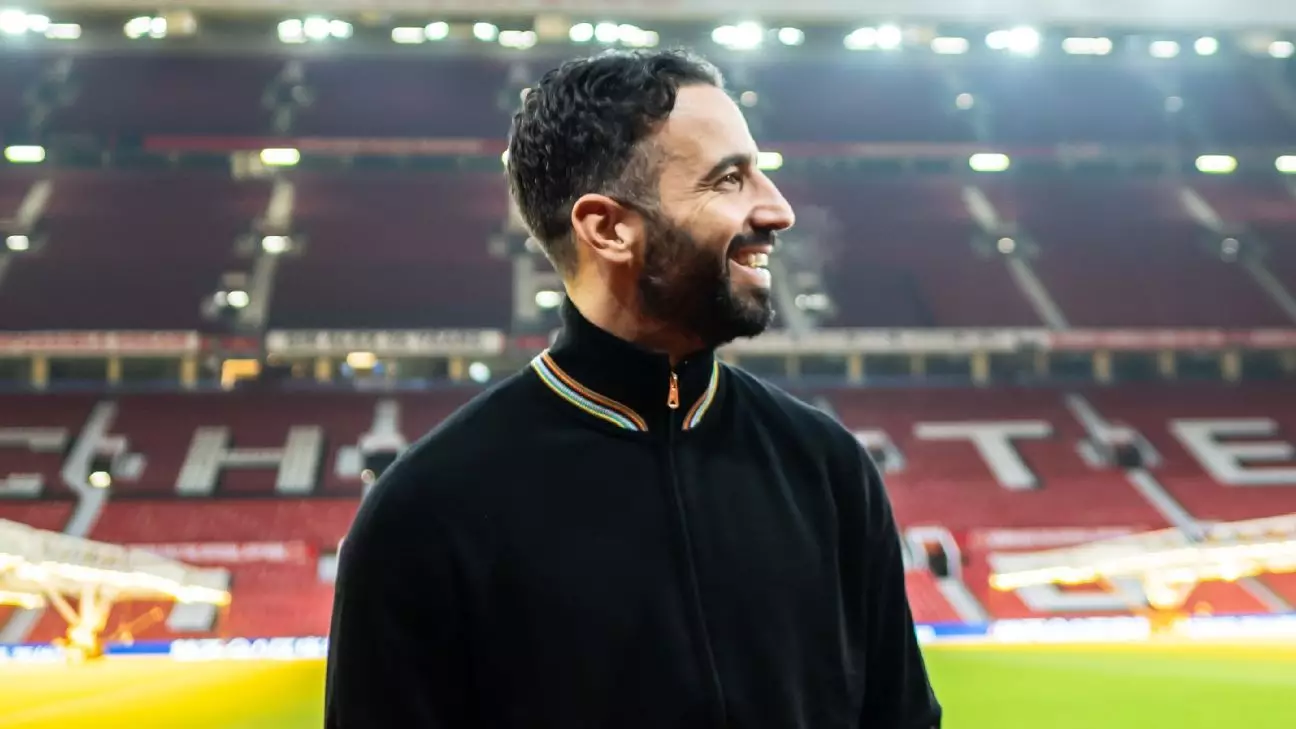Manchester United is undergoing a significant transformation this season with the introduction of their new head coach, Rúben Amorim. Amidst challenges that loom large, not least the enduring dominance of rivals Manchester City and their manager Pep Guardiola, Amorim’s task is not just to restore glory to Old Trafford but also to navigate an increasingly competitive landscape in the Premier League.
Guardiola’s Presence: A Continuous Challenge
The re-signing of Pep Guardiola to a two-year extension at Manchester City has sent ripples throughout English football. With an impressive track record, having clinched six league titles in the last seven seasons, Guardiola’s continued influence represents a significant hurdle for any aspiring manager in the league. Amorim openly acknowledged this reality. He referred to Guardiola’s contract as “a problem for everybody,” but emphasized a crucial point—his primary concern must be the improvement of Manchester United. Instead of obsessing over rival teams, Amorim’s focus remains resolutely on his side’s own development, affirming the need for a tactical and cultural evolution within the club.
Amorim’s statement that beating Guardiola’s team would be an “amazing” accomplishment underscores the gravity of the challenge ahead. However, the passion and ambition expressed by the new head coach speak volumes about his outlook. Recognizing the formidable opponent while prioritizing internal progress exemplifies a balanced and professional approach that may prove pivotal in United’s recovery.
Rúben Amorim steps into a role laden with expectations, particularly as he aims to become the first manager since Sir Alex Ferguson to claim a league title with United. His exciting yet daunting first encounter will be against Ipswich, where he’ll begin his bid to reclaim Manchester United’s storied legacy. Despite the weight of history resting on his shoulders, Amorim is determined to carve a unique identity that resonates with today’s game.
He notably distinguished his journey from that of Ferguson, emphasizing the need for authenticity in his managerial style. Amorim’s recognition that football dynamics have shifted since Ferguson’s era indicates a commendable understanding of the evolving sports landscape. This awareness, coupled with his requirement for a demanding approach, suggests that Amorim is poised to forge a new path for the club by respecting its history without merely replicating past successes.
Amorim’s early days are marked by a challenging context—he is thrust into a season that has begun poorly for United under Erik ten Hag. One of the most significant hurdles for any mid-season appointment is the limited time available for tactical adjustments and team bonding. Amorim candidly acknowledged these difficulties, noting that a sporadic schedule with no breaks for national team duties detracts from training and player development.
His recognition that working on tactical changes during matches, rather than in training, tests any coach’s mettle. The pressure of losing without sufficient time for refinement can lead to a reactive rather than proactive strategy. Consequently, Amorim’s strategic planning will need to emphasize recovery and adaptation strategies that capitalize on the limited opportunities to train.
Rúben Amorim’s appointment as the new head coach of Manchester United arrives with a mixture of excitement and apprehension. He is finely positioned as both an innovator and a custodian of the club’s distinctive identity. Facing a league champion like Guardiola requires a blend of respect, resilience, and originality. Amorim’s willingness to navigate these complexities while instilling confidence in his players could be the lodestar needed for United’s revival. The forthcoming season promises to be a narrative of trials and triumphs, where every match will serve as a crucial turning point in Amorim’s ambition to restore Manchester United to its former glory.

